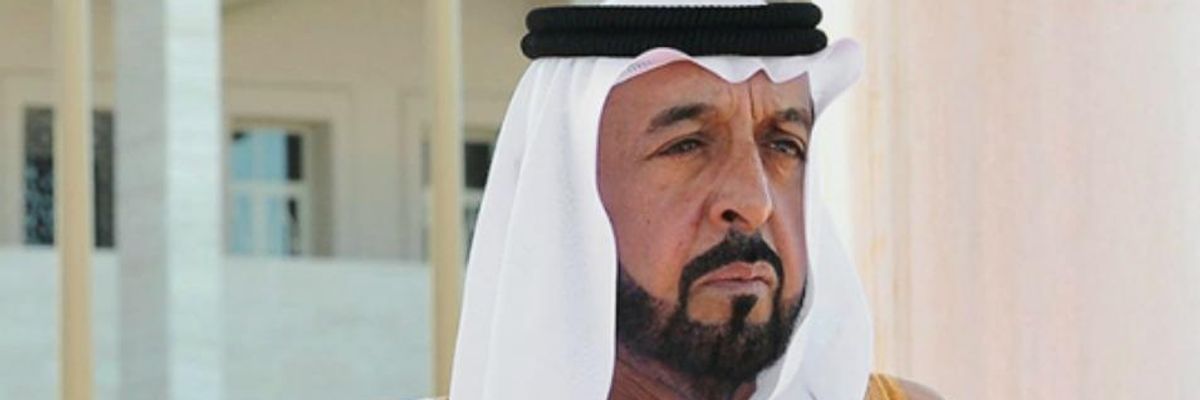The tiny and very rich Persian Gulf emirate of Qatar has become a hostile target for two nations with significant influence in the U.S.: Israel and the United Arab Emirates. Israel is furious over Qatar's support for Palestinians generally and (allegedly) Hamas specifically, while the UAE is upset that Qatar supports the Muslim Brotherhood in Egypt (UAE supports the leaders of the military coup) and that Qatar funds Islamist rebels in Libya (UAE supports forces aligned with Ghadaffi).
This animosity has resulted in a new campaign in the west to demonize the Qataris as the key supporter of terrorism. The Israelis have chosen the direct approach of publicly accusing their new enemy in Doha of being terrorist supporters, while the UAE has opted for a more covert strategy: paying millions of dollars to a U.S. lobbying firm - composed of former high-ranking Treasury officials from both parties - to plant anti-Qatar stories with American journalists. That more subtle tactic has been remarkably successful, and shines important light on how easily political narratives in U.S. media discourse can be literally purchased.
This murky anti-Qatar campaign was first referenced by a New York Times article two weeks ago by David Kirkpatrick, which reported that "an unlikely alignment of interests, including Saudi Arabia, the United Arab Emirates, Egypt and Israel" is seeking to depict Doha as "a godfather to terrorists everywhere" (Qatar vehemently denies the accusation). One critical component of that campaign was mentioned in passing:
The United Arab Emirates have retained an American consulting firm, Camstoll Group, staffed by several former United States Treasury Department officials. Its public disclosure forms, filed as a registered foreign agent, showed a pattern of conversations with journalists who subsequently wrote articles critical of Qatar's role in terrorist fund-raising.
How that process worked is fascinating, and its efficacy demonstrates how American public perceptions and media reports are manipulated with little difficulty.
Read the full article at The Intercept.

